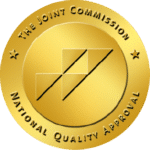Tarzana, South Bay, and Santa Monica
Ketamine Therapy, TMS
and CBT.
This Program is Changing Lives.
IOP level of treatment is 3 or more hours per day for 3 to 5 days per week.
We are not in network with any PPO insurance plans, but we can accept them as an out-of-network provider.
We proudly work with veterans, police officers, firefighters, and first responders. Post-traumatic stress disorder (PTSD), trauma therapy and treatment. Have you or a loved one witnessed and or lived through a traumatic, scary, shocking or stressful event? PTSD therapy and treatment might be right for you.
According to the Psychiatry.org, post-traumatic stress disorder (PTSD) is a psychiatric disorder that can occur in people who have experienced or witnessed a traumatic event such as a natural disaster, a severe accident, a terrorist act, war/combat, rape, or other violent personal assault.
PTSD has been known by many names, such as “shell shock” during World War I and “combat fatigue” after World War II. But PTSD does not just happen to combat veterans. PTSD symptoms can occur in all people of any ethnicity, nationality, culture, and age. PTSD affects approximately 3.5 percent of U.S. adults, and an estimated one in 11 people will be diagnosed with PTSD in their lifetime. Women are twice as likely as men to have PTSD.


People with PTSD have intense, disturbing thoughts and feelings related to their experience that last long after the traumatic event has ended. They may relive the event through flashbacks or nightmares; they may feel sadness, fear, or anger; and they may feel detached or estranged from other people. People with PTSD may avoid situations or people that remind them of the traumatic event, and they may have strong adverse reactions to something as ordinary as a loud noise or an accidental touch.
A diagnosis of PTSD requires exposure to an upsetting, traumatic event. However, exposure could be indirect rather than first-hand. For example, PTSD could occur in an individual learning about the violent death of a close family. It can also occur due to repeated exposure to horrible details of trauma, such as police officers being exposed to elements of child abuse cases.
IV and intranasal Ketamine (Spravato) and TMS (transcranial magnetic stimulation) is an exciting new avenue for those seeking PTSD treatment in Santa Monica because the effects of Ketamine’s relief on the symptoms of depression, and trauma, can be felt within hours rather than the usual four-to-six weeks it takes for a standard antidepressant medication to take hold. A person could find total relief within weeks and be part of a depression therapeutic program like we have here in Santa Monica.
One of the areas of the brain that is affected by PTSD is the cerebral cortex. This part of the brain is partly responsible for the thought processes during and after a trauma. The current understanding is that certain synapses within the brain fail to function correctly during and after a traumatic event. These neurotransmitters then begin to misfire later on in life. Using Ketamine to treat PTSD stimulates the brain to release glutamate, a hormone associated with regrowth and regeneration within these critical neural synapses.

The primary cause of this condition is some traumatic event that triggers changes in the brain that alter how it functions. As with most mental health conditions, researchers are still trying to figure out exactly why some people develop post-traumatic stress disorder after they experience trauma. However, changes have been found in the parts of the brain that are associated with memory and emotional regulation, such as the prefrontal cortex and amygdala. People with this disorder also tend to have higher levels of the stress hormones cortisol and norepinephrine. Your brain can suddenly trigger the fight-or-flight response if it senses anything that reminds it of the traumatic event.
Combat exposure is one of the most commonly known types of traumatic events that a person can experience. However, you also need to know that mental health professionals consider the following situations to be capable of causing a person to develop this condition:
You should also be aware that events such as fires, natural disasters or plane crashes can all be the underlying cause of someone developing this condition. First responders also tend to experience PTSD symptoms long after they help someone recover from a life-threatening emergency. This is especially common if you help with an accident or medical emergency, and if you have never received prior training.
Before using Ketamine Infusions to treat PTSD, people experience extreme responses to common experiences in their environment that remind them of the trauma. For example, you may hear a car backfire and instantly begin to relive your experience with gunfire. Alternatively, a person may drive past the location of where they had a car accident and begin to remember the vivid details of the scene. For people who have lost a loved one, a trigger could be as simple as hearing a news story about the health condition that led to the death. A hint of perfume, a certain food and even the sound of a baby crying can all be triggers for your PTSD symptoms depending upon what caused your condition.
Since most of the triggers for this condition are things that happen every day, it makes it impossible to control your response. This is why it is essential to seek treatment for PTSD with Ketamine Infusions when you notice that you are struggling with managing your reactions to common triggers.
PTSD symptoms often start shortly after the triggering event. However, people can go many years without problems until something triggers their brain’s responses. This commonly occurs with childhood abuse, where people may have blocked out painful events from their earliest years. Becoming a new parent may bring back these memories, as can suffering from a similar type of experience, such as sexual assault as an adult. If these symptoms begin to show up long after the traumatic event, it is important to take them seriously since they represent a need for professional treatment.
Untreated Post-Traumatic Stress Disorder often leads to people developing anxiety disorders and depression. In severe cases, a person may even begin to start thinking about suicide as a way to escape from their symptoms. If the PTSD symptoms are severe, then a person may be unable to function in a normal environment. Avoidance and other symptoms may make a person stop going to work, driving or even being able to sleep at night. Over time, this severely affects a person’s quality of life.
You need to seek treatment for post-traumatic stress disorder at the first sign that you are struggling with coping with a tragic event. This type of mental health disorder is challenging to treat, but getting help as soon as possible helps to reduce the effects that trauma has on your brain. Anyone who finds that their symptoms get in the way of living a normal lifestyle that feels safe and comfortable needs to reach out to find out if they need treatment for PTSD with Ketamine Infusions.
Reliving a tragic event turns your life upside down. Your symptoms may interfere with your relationships, and you may struggle with normal parts of your day such as going to work. When PTSD is interfering with your ability to make progress in your life, it is time to seek a professional’s guidance to identify a treatment that helps you heal.
FIND RELIEF WITH CLEAR MIND
Schedule a free confidential consultation with a member of our team. Get your questions answered quickly.
Our Locations:
Certification Number: 191268AP
Expiration: 9/30/2025



Clear Mind Treatment is an intensive outpatient healing center that helps individuals struggling with depression, anxiety, trauma and related mental health concerns. Our beautiful, private facility welcomes clients to take part in our uniquely individualized treatment program.

LGBTQIA-Friendly Environment

We proudly work with veterans, police officers, firefighters, and first responders. Post-traumatic stress disorder (PTSD), trauma therapy and treatment. Have you or a loved one witnessed and or lived through a traumatic, scary, shocking or stressful event? PTSD therapy and treatment might be right for you!
